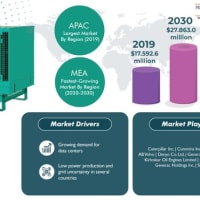By the end of 2020, the construction sector of India is expected to value $5 billion, as per government sources. Moreover, growing by 7.1% every year, it is expected to become the world’s third largest by 2025. Additionally, between April 2000 and December 2019, the country’s infrastructure industry received investments worth $25.37 billion, says the Department for Promotion of Industry and Internal Trade (DPIIT). This reflects the rising construction of commercial, residential, and industrial buildings, as well as civic structures, such as tunnels, roads, highways, and bridges.
In this sector, concrete is the basic material, which is poured into molds of various shapes and sizes to create the desired structures, such as the pillars and girders of highways and metro viaducts. To ensure that the concrete doesn’t stick to the mold and the mold can be easily separated from the structure, without damaging it, several chemicals are used. Hence, as construction and infrastructure activities pick up further, the Indian mold release agents market, which valued $114.6 million in 2018, would grow at a 5.2% CAGR between 2019 and 2024, to $153.9 million by 2024.
Get a sample copy of this report:
https://www.psmarketresearch.com/market-analysis/indian-mold-release-agents-market/report-sample
As per the India Brand Equity Foundation (IBEF), India is the world’s third largest vehicle market and seventh largest automobile producer. In 2018, automobile sales in the country touched 3.99 million units, rising by 8.3% from the previous year. Moreover, the export of vehicles from India also increased, by 14.50% in Financial Year 2019; they have been predicted to display a CAGR of 3.05% between 2016 and 2026. Tires, plastic parts, ferrous and non-ferrous components, and fiber products are widely produced for the automotive sector, which create a high requirement for chemicals to release them from their mold.
With the rising demand for automobiles, several international vehicle manufacturers, such as Daimler, BMW, Mercedes-Benz, Audi, Ford, Hyundai, Honda, Skoda, Nissan, Toyota, and Chevrolet, have set up manufacturing plants in the country. Being a emerging economy, raw material and labor are available cost-effectively here, which draws auto giants from around the world to set up operations here, thus resulting in an increasing demand for mold release agents. For the same reason, manufacturers of almost everything, including power equipment (gas turbines and generators) and consumer electronics, are making stuff in India.
In this sector, concrete is the basic material, which is poured into molds of various shapes and sizes to create the desired structures, such as the pillars and girders of highways and metro viaducts. To ensure that the concrete doesn’t stick to the mold and the mold can be easily separated from the structure, without damaging it, several chemicals are used. Hence, as construction and infrastructure activities pick up further, the Indian mold release agents market, which valued $114.6 million in 2018, would grow at a 5.2% CAGR between 2019 and 2024, to $153.9 million by 2024.
Get a sample copy of this report:
https://www.psmarketresearch.com/market-analysis/indian-mold-release-agents-market/report-sample
As per the India Brand Equity Foundation (IBEF), India is the world’s third largest vehicle market and seventh largest automobile producer. In 2018, automobile sales in the country touched 3.99 million units, rising by 8.3% from the previous year. Moreover, the export of vehicles from India also increased, by 14.50% in Financial Year 2019; they have been predicted to display a CAGR of 3.05% between 2016 and 2026. Tires, plastic parts, ferrous and non-ferrous components, and fiber products are widely produced for the automotive sector, which create a high requirement for chemicals to release them from their mold.
With the rising demand for automobiles, several international vehicle manufacturers, such as Daimler, BMW, Mercedes-Benz, Audi, Ford, Hyundai, Honda, Skoda, Nissan, Toyota, and Chevrolet, have set up manufacturing plants in the country. Being a emerging economy, raw material and labor are available cost-effectively here, which draws auto giants from around the world to set up operations here, thus resulting in an increasing demand for mold release agents. For the same reason, manufacturers of almost everything, including power equipment (gas turbines and generators) and consumer electronics, are making stuff in India.




















※コメント投稿者のブログIDはブログ作成者のみに通知されます